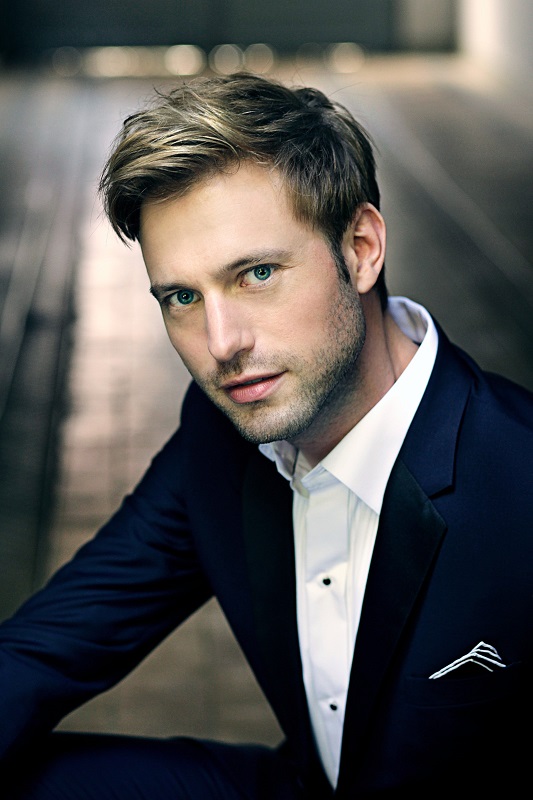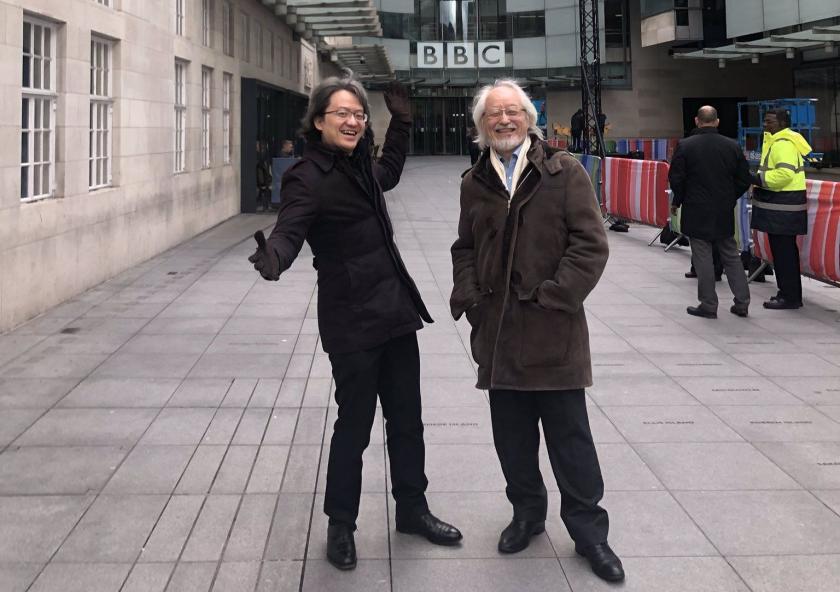Not long after noon on Sunday, strange bells began ringing. In just 11 bars, Bach summons pairs of flutes, oboes and violas da gamba against pizzicato strings and continuo to tintinnabulate against the alto's recitative lines about a "vibrating clang" to "pierce our marrows and our veins". These hallucinatory sounds and harmonies could have been composed yesterday. Instead they're at the service of a 1727 lamentation mourning the death of a princess.
That you can find such moments of sheer astonishment in just about every Bach cantata - there is another towards the end of "Laß, Fürstin, laß noch einen Strahl" ("Let, Princess, just one more glance") when the choir breaks into unison, buoyantly highlighted by Masaaki Suzuki - means a lifetime may not be enough to catch live performances of them all. So opportunities like the Royal Academy of Music's Sunday series - if you can get a ticket, for they're like gold dust and seem to be all snapped up by senior patrons - and the Barbican's Bach: A Beautiful Mind weekend are to be treasured.
Though not linked series-wise, the two Sunday events gave us a serendipitous chance to hear Suzuki senior - one of the great JSB doyens of our time for performances with his pioneering Bach Collegium Japan - working, as he often does, with music students (★★★★) and later his gifted son Masato conducting and playing alongside the Academy of Ancient Music, trying - and often succeeding - to bring to life the dead zone of Milton Court (★★★).
 The other shock of the lunchtime concert was that I hadn't checked to see which mass was keeping the funeral cantata company, and was so jolted to hear the B minor Kyrie seizing our attention with the great blaze of its opening bars. Here was the first third of the greatest mass-setting ever, composed during a period of mourning for another ruler, Augustus II 'the Strong", to secure a post at the Saxon court in Dresden under the next Highness in 1733 (Bach eventually got there three years later, and only completed what we know as the B minor Mass towards the very end of his life). The shock and awe suggest that the composer had the whole edifice in mind from the start, but it's already enough to witness the three contrasting parts of the Kyrie and the breathtakingly varies sequence of the Gloria.
The other shock of the lunchtime concert was that I hadn't checked to see which mass was keeping the funeral cantata company, and was so jolted to hear the B minor Kyrie seizing our attention with the great blaze of its opening bars. Here was the first third of the greatest mass-setting ever, composed during a period of mourning for another ruler, Augustus II 'the Strong", to secure a post at the Saxon court in Dresden under the next Highness in 1733 (Bach eventually got there three years later, and only completed what we know as the B minor Mass towards the very end of his life). The shock and awe suggest that the composer had the whole edifice in mind from the start, but it's already enough to witness the three contrasting parts of the Kyrie and the breathtakingly varies sequence of the Gloria.
Suzuki senior had forged a vibrant entity from the 17 singers of the Academy Bach Consort, much more responsive to the meanings of German and Latin texts than many another small-scale choir in the UK, and underpinned crucially by three resonant basses. Solo-wise, there was more of a challenge - you realise with these young singers how much Bach demands in terms of range and a length of line which taxes the breath control - and here an alertness to the text countered a chrysalis sense of vocal personality. The big exception came, thrillingly, just before the trumpet-crowned panoply of the final "Cum Sancto Spiritu", in the bass aria "Quoniam tu solus sanctus". Not only was there a sheen to the intelligence of Johannes Moore, but also the most perfect delivery I've ever heard live of the treacherous horn solo from Isaac Shieh (pictured above in the RAM's Duke's Hall with Masaaki Suzuki). It might seem invidious to talk of stars when this is all about ensemble, but Shieh truly crowned the whole achievement.
 Moore's ideal sound was not to be replicated by baritone Benjamin Appl (pictured left by Uwe Arens/Sony Classical) in the evening concert - awkward, because the programme, which I believe Masato Suzuki came to at a relatively late stage, shone the spotlight on its singer. Appl was certainly more comfortable in the lively cantata of the second half, "Ich will den Kreutzstab gerne tragen" ("I shall willingly carry the cross") than being out of his depth, in both senses, for the great "Ich habe genug" ("I am content"), the low notes almost invisible, the overall tone not warm enough - at least in Milton Court's dry acoustics - for the deep sympathy this masterpiece must elicit.
Moore's ideal sound was not to be replicated by baritone Benjamin Appl (pictured left by Uwe Arens/Sony Classical) in the evening concert - awkward, because the programme, which I believe Masato Suzuki came to at a relatively late stage, shone the spotlight on its singer. Appl was certainly more comfortable in the lively cantata of the second half, "Ich will den Kreutzstab gerne tragen" ("I shall willingly carry the cross") than being out of his depth, in both senses, for the great "Ich habe genug" ("I am content"), the low notes almost invisible, the overall tone not warm enough - at least in Milton Court's dry acoustics - for the deep sympathy this masterpiece must elicit.
Appl was disappointing, too, in the poignant glory of "Es ist vollbracht"("It is finished") - not the famous setting of those words in the Matthew Passion, but an equally profound and original treatment in the cantata "Sehet, wir gehn hinauf gen Jerusalem" ("Behold, let us go up to Jerusalem") - diminished by the voice at the same time as it pierced the soul in the contribution of the orchestra and the playing of oboist Leo Duarte.
It wasn't just Duarte who shone, in the first-half cantata sinfonias, but also Suzuki the younger in a surprising manifestation of what we know best as the outer movements of the D minor Harpsichord Concerto. As sinfonias for two more cantatas, they sounded startlingly different in the collaboration between the players and the conductor at the chamber organ, a virtuosic tour de force which twice stole the show.













Add comment